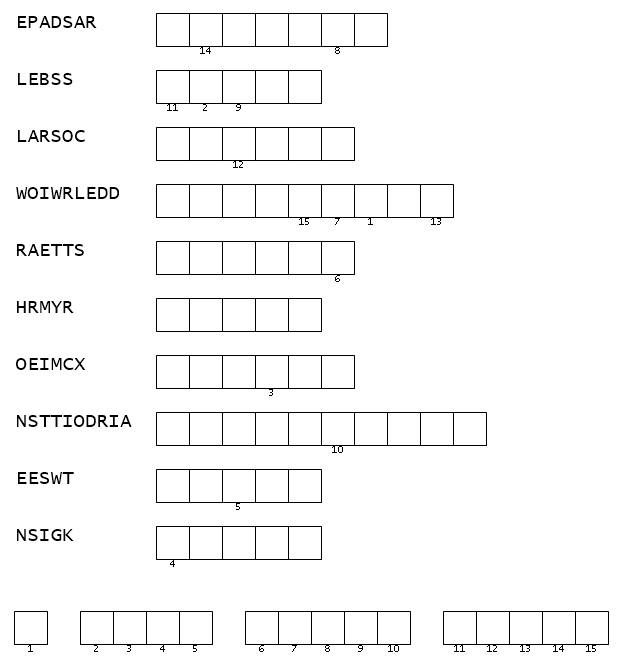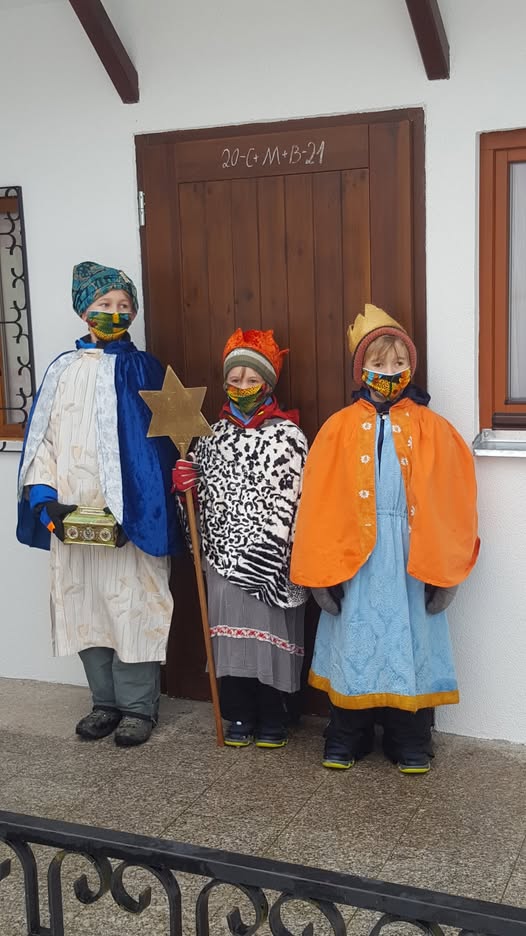You work at the front desk of a ***** hotel, and there is a group of guests from Roman Catholic countries.
Here is some information on January 6th, a special day for those catholics.
January 6th, or Three Kings‘ Day(Epiphany), is a Christian holiday celebrated by Catholics worldwide. It honors the visit of the Three Wise Men (Caspar, Melchior, and Balthasar) to baby Jesus, bringing gifts of gold, frankincense, and myrrhto recognize Him as the Son of God.
Traditions vary across countries. In Austria and Germany, children dressed as the Three Kings (called Sternsinger) visit homes, sing carols, collect donations for charity, and bless houses by writing C+M+B with the year above the door. This represents the Kings’ names and the Latin phrase “Christ bless this house.”
In Spain and Latin America, the day includes parades and gift-giving, with sweet bread like Rosca de Reyes enjoyed in Mexico. In Italy, the holiday features La Befana, a kind old woman who delivers treats to children. In Eastern Orthodox traditions, it focuses on Jesus‘ baptism.
################################
To celebrate: To do something special and happy for an important event or day.
- To honor: To show respect and think someone or something is very important.
- A gift: Something you give to someone, like a present.
- Frankincense: A sweet-smelling substance that is burned to make a nice smell, often in churches.
- To recognize: To see or understand that something or someone is important.
- Carols: Special songs, often about Christmas, that people sing.
- To collect: To gather or bring things together, like money or items.
- Donations: Money or things people give to help others.
- Charity: Helping people in need by giving money, food, or other support.
- To bless: To ask for God’s help or protection for someone or something.
- Gift-giving: The act of giving presents to others.
- To enjoy: To feel happy about something or have fun doing it.
- To feature: To include something as an important part.
- To deliver: To bring or take something to someone.
- Treats: Small, special things like sweets or snacks that make people happy.
- Baptism: A Christian ceremony where water is used to welcome someone into the faith.
################################
Here are 10 statements based on the text, with 4 of them being incorrect – which?
- Three Kings‘ Day is celebrated on January 6th.
- The Three Wise Men brought gifts of gold, silver, and myrrh to baby Jesus.
- In Austria and Germany, children dressed as the Three Kings visit homes and collect donations for charity.
- Frankincenseis a type of sweet bread often eaten on January 6th.
- The tradition of Sternsinger involves blessing houses with C+M+B above the door.
- In Spain and Latin America, gift-giving happens on Christmas Eve.
- The holiday marks the baptism of Jesus in many Christian traditions.
- In Italy, the holiday is celebrated with the story of La Befana, a kind woman who brings gifts.
- In Mexico, a popular food called Rosca de Reyes is eaten on Three Kings‘ Day.
- Carols are songs that are sung during the Three Kings‘ Day celebrations.
################################
Here are 10 multiple-choice questions based on the text, with more than one correct answer in some questions
- When is Three Kings‘ Day celebrated?
a) January 6th
b) December 25th
c) January 1st
d) December 24th - What did the Three Wise Men bring to baby Jesus?
a) Gold
b) Frankincense
c) Silver
d) Myrrh - In which countries do children dress as the Three Kings and visit homes?
a) Austria
b) Germany
c) Spain
d) France - What does C+M+B stand for when blessing houses on Three Kings‘ Day?
a) Caspar, Melchior, Balthasar
b) Christ, Mary, Bethlehem
c) Christ bless this house
d) Carols, Music, Blessings - What is often eaten in Mexico on Three Kings‘ Day?
a) Tamales
b) Rosca de Reyes
c) Churros
d) Tacos - What is the role of La Befana in Italy’s Three Kings‘ Day celebration?
a) A wise man who brings gifts
b) A kind woman who delivers treats
c) A star that guides the Wise Men
d) A Christmas tree decorator - What do children do as part of the Sternsinger tradition in Austria and Germany?
a) Deliver gifts to the poor
b) Sing carols
c) Dress as Santa Claus
d) Collect donations for charity - What is the Epiphany?
a) The visit of the Three Kings to Jesus
b) The baptism of Jesus
c) The birth of Jesus
d) The start of Lent - What is the significance of the Three Kings‘ Day holiday?
a) It marks the end of the Christmas season
b) It celebrates Jesus’ baptism
c) It celebrates the arrival of the Three Kings
d) It is the day Jesus was born - Which of these are common traditions for Three Kings‘ Day celebrations?
a) Parades
b) Gift-giving
c) Easter egg hunts
d) Singing carols
################################
FILL IN:
- Three Kings‘ _______________ is on January 6th.
- The holiday marks the ______________ of the Three Wise Men.
- The Three Kings _______________ gold, frankincense, and myrrh.
- In Austria and Germany, children ______________ as the Three Kings.
- The C+M+B symbol is written above __________________.
- Children collect ________________ for charity on Three Kings‘ Day.
- In Spain and Latin America, there are _______________ and gift-giving.
- In Italy, La Befana brings ____________ to children.
- Rosca de Reyes is ______________ in Mexico on this day.
- The ________________ ends the Christmas season for many Christians.
treats, dress, holiday, day, doors, brought, donations, eaten, visit, parades
################################
Which is correct?
- Is Three Kings‘ Day celebrated on January 6th or 7th?
- Did the Three Wise Men bring gold, frankincense, and myrrh or silver and diamonds?
- Are the children in Austria and Germany called Sternsinger or Santas?
- Do children collect donations for charity or for gifts on Three Kings‘ Day?
- Is the C+M+B symbol used to bless houses or to decorate Christmas trees?
- Do children sing carols on Three Kings‘ Day or Christmas Eve?
- Is Rosca de Reyes eaten in Mexico or Spain on January 6th?
- Does La Befana bring treats to children in Spain or Italy?
- Are parades a tradition in Spain and Latin America or only in the United States?
- Is Three Kings‘ Day a celebration of the Three Kings‘ visit or Jesus‘ baptism?
################################
Find the words in the text, and the phrase at the end


060125